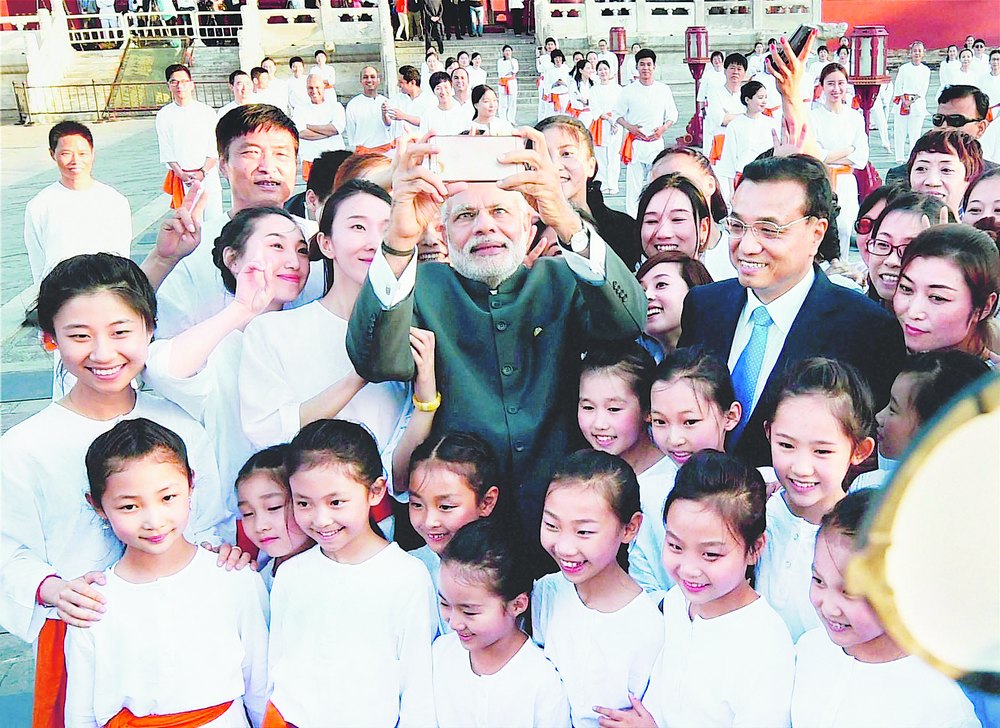
Beijing, May 15: Prime Minister Narendra Modi sprang a surprise today by extending the facility of electronic visas to China - an issue on which India has been holding out for quite some time.
India now offers electronic visas (or e-visas) to the nationals of 75 countries including Sri Lanka, Israel and Palestine but not Bangladesh or Pakistan.
The e-visa is given to travellers who visit India for recreation, sightseeing, meeting friends and relatives, or short-duration medical treatment. It's also issued to those on a casual business trip.
At a press briefing earlier in the day, foreign secretary S. Jaishankar had said the government had not yet taken a decision whether to grant e-visas to Chinese nationals.
Later, addressing students at the Tsinghua University here, Modi said India and China accounted for about 33 per cent of the world's population but "our people know very little of each other".
"We must seek inspiration from the pilgrims from the ancient times who braved the unknown in search of knowledge and enriched both of us," he said, just a day after visiting the Wild Goose Pagoda in Xian which stores Buddhist scriptures collected and translated by Xuanzang, who had spent 17 years travelling through India in the seventh century.
"So, we have decided to extend electronic tourist visas to Chinese nationals. We are celebrating the Year of India in China in 2015," Modi added.
A tourist from one of the eligible countries must file for an e-visa online after uploading a photo and a copy of his passport and paying the visa fee. The e-visa is sent online and the tourist must print it out before travelling to India.
"These are just some of the many steps India and China are taking to bring the world's two largest populations in closer contact.... It is the youth that will inherit the future of our countries and the responsibility for our relationship," Modi said.
He said India and China had a shared sense of history that began with the Tang dynasty when the "world's first large-scale educational exchange programme took place between India and China".
But it wasn't just about spirituality: trading and artisanal arts had also forged strong links.
Modi said cotton was one of the first commodities that India and China had traded. It still remains a big money-spinner in India's small basket of exports to China. In the 11 months between April 2014 and February this year, India exported cotton worth Rs 2,074.15 crore to China. In the full year of 2013-14, it was even higher at Rs 3,833.41 crore.
Modi said India was now on the frontier of the next economic revolution and his government was making a series of policy moves designed to eliminate unnecessary regulations and simplify procedures.
He said his government had lifted controls on foreign investment in key areas like insurance, construction, defence and railways and had decided to use digital technology to eliminate the need for multiple approvals.
He said his government was striving to create a predictable, stable and competitive tax regime and would make sure that land acquisition would not "become a barrier to growth or a burden on farmers".
The contentious land acquisition bill has been lobbed to a standing committee of Parliament and will have to go through a very rigorous scrutiny before it is passed, if at all.











